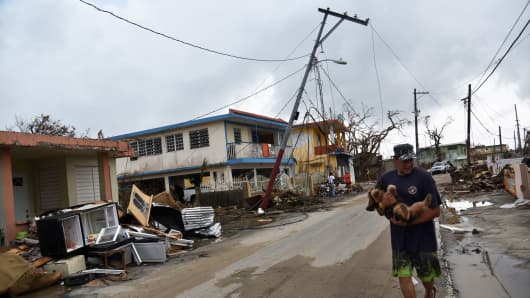Puerto Rico is struggling to rebuild after a series of devastating storms that leveled homes and deprived residents of water and power. The Trump Administration and Congress responded to our urgent initial request by approving vital funds to start the rebuilding process. But now, the current tax bills in Congress could deliver a final catastrophic blow to our economy.
Bills moving through the House and Senate would slap new taxes on goods and services that flow between American businesses with operations in Puerto Rico and their parent companies in the U.S. This 20 percent excise tax was meant to prevent companies from avoiding taxation by shifting profits to other countries, not slow the flow of capital to and from a U.S. territory.
This levy has the potential to destroy those businesses the storms didn't. By applying this 20 percent tax to products made in Puerto Rico, companies with a strong presence on the island would be forced to shutter those operations and decamp for the mainland or, worse, a lower-tax country. This would put tens of thousands of U.S. citizens in Puerto Rico out of work and demolish our tax base right as we are trying to rebound from historic storms.
As an unincorporated territory, Puerto Rico is subject to the will of Congress in federal tax law. Puerto Rico has been included in the U.S. Customs Zone since 1917. For over 50 years, Congress has successfully supported Puerto Rico in the federal tax code as a competitive manufacturing center.


